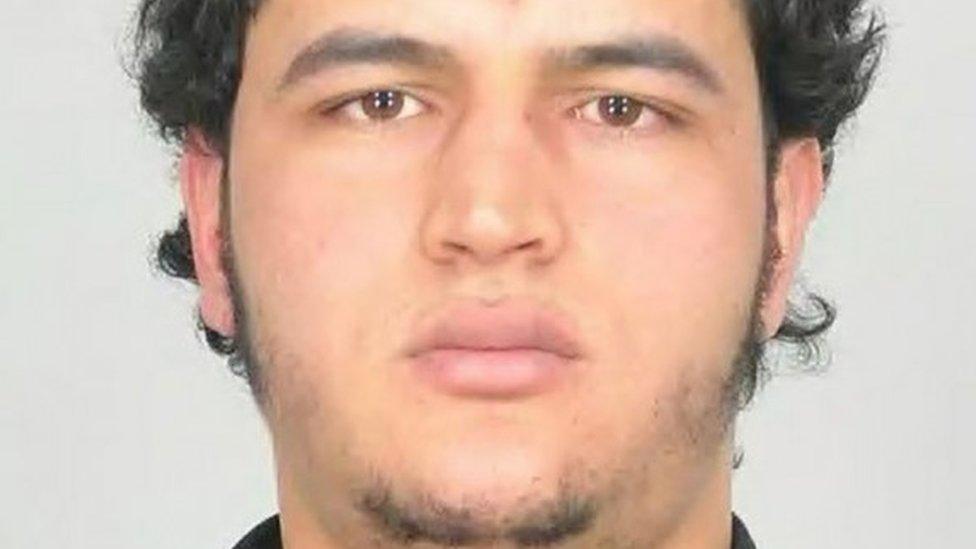Berlin truck attack: Polish driver 'shot hours before'
- Published
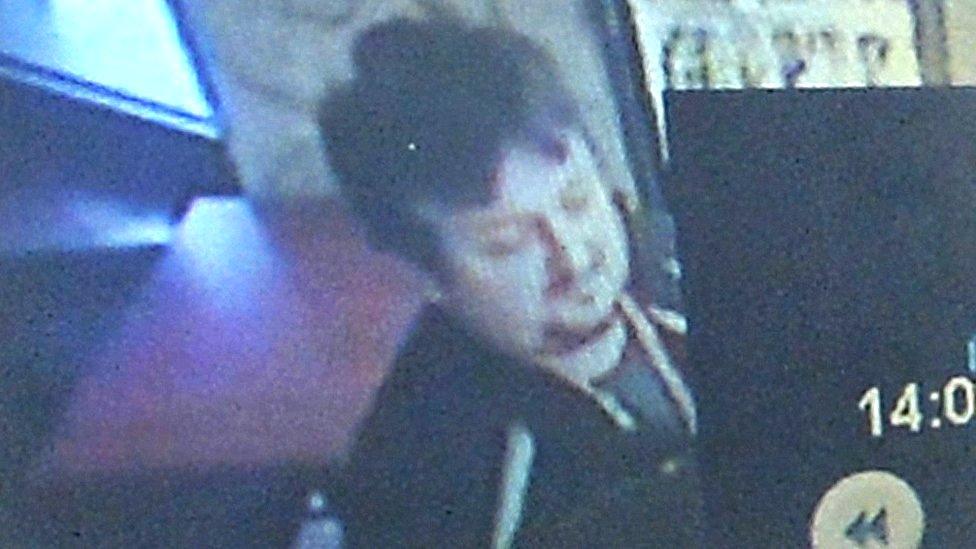
This is the last picture of Lukasz Urban, shortly before he was attacked
Polish driver Lukasz Urban was shot in the head hours before suspected jihadist killer Anis Amri rammed the man's lorry into a crowd, say German media citing a post-mortem examination.
Twelve people including Mr Urban died in the attack on a Berlin Christmas market on 19 December.
Mr Urban, who was also stabbed, was hailed a hero amid reports that he had prevented further deaths.
But doctors have ruled out that he was conscious, says Bild newspaper.
The conclusions of Mr Urban's post-mortem examination say he was shot in the head between 16:30 (15:30 GMT) and 17:30 and lost a lot of blood, the paper reports. His boss and cousin said he had lost contact with him at around 16:00.
The attack on the market at Breitscheidplatz took place just after 20:00, and he may still have been alive at the time in the passenger seat although not capable of grabbing a steering wheel, Bild adds.
Mr Urban, 37, had parked the 40-tonne lorry in Berlin, waiting to unload a consignment of steel beams the following day. A petition calling for him to be given a posthumous award , externalhad attracted some 38,000 signatures by Tuesday.
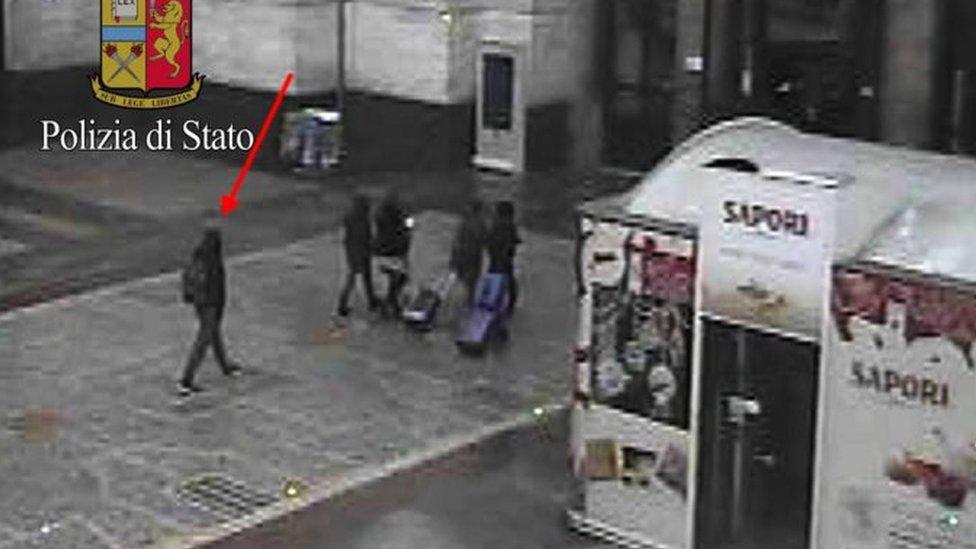
Italian police have produced a photo showing Amri leaving Milan central station at 00:58 on 23 December
Tunisian-born Anis Amri, 24, was eventually shot dead by an Italian policeman near Milan on 23 December, after he had travelled from Berlin through France. A video was released of him pledging allegiance to the head of jihadist group Islamic State (IS).
Investigators are trying to find out if he had accomplices, and CCTV footage has emerged of him at Lyon-Part-Dieu station, before he apparently boarded a train via Chambery on his way to Milan.
He was identified by his backpack, French media said. "He was on his own on the footage," a source was quoted as saying.
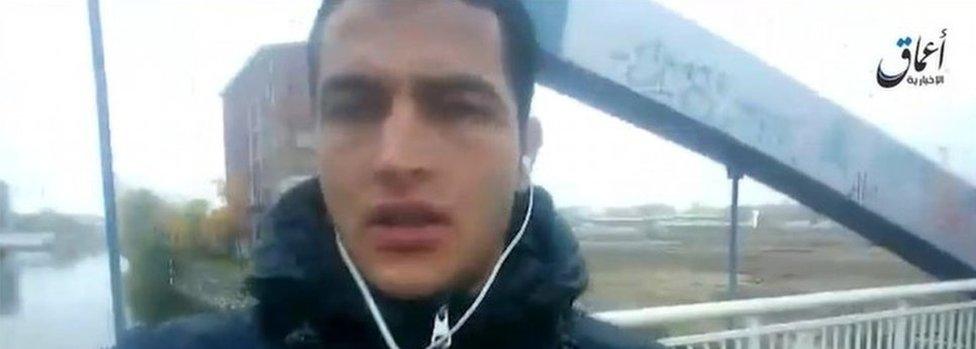
Amri pledged allegiance in a video to so-called Islamic State
What is not clear is how Amri travelled from Berlin via France without being spotted by police. Rail tickets bought in cash were found on his body.
Police have produced a picture of Amri at Milan central station, three hours before he pulled a gun and fired at two police officers who had stopped him for a routine check outside Milan. They have pieced together his journey first to Turin, then by another train to Milan, where he took a coach to the north-eastern suburb of Sesto San Giovanni.
Italy bolsters security
Italian policeman Cristian Movio, who was shot in the shoulder by Amri, has told Italian media he is now able to move "without too much pain".
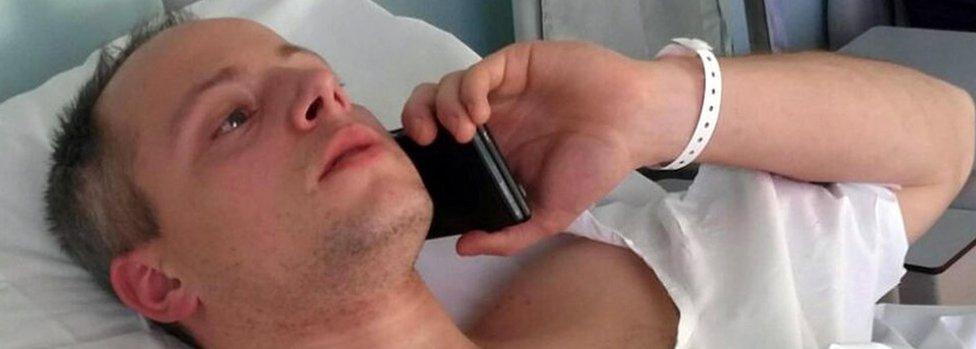
Cristian Movio said he and his colleague had stopped the gunman because of good training, composure and a little luck
Officials are trying to find out if the gunman was in contact with anyone in Italy and what his next destination was.
Amri had around €150 (£128) in cash, according to reports, and no food or extra clothing in his backpack. One theory is that he was aiming to take a bus to the Balkans or southern Italy.
Italy has beefed up security because of the risk of revenge attacks. A senior official in Italy's department of public security, Maurizio Vallone, warned that it was the "first time a terrorist has been killed in Italy... we have to be particularly careful to take every possible means of self defence".
Three people are being held by the Tunisian authorities, including a nephew who had contact with Amri via the social media app Telegram.
Amri's request for asylum in Germany had been turned down and although he had been designated by authorities as a potential risk, they had lost track of him.
He was classed as a "gefaehrder", considered to be a serious risk but without concrete evidence for it. German authorities have given the status to 549 people.

Abu Walaa is known as the preacher without a face because of internet videos showing only his back
Amri moved to Germany in 2011 after four years in jail in Italy for a series of offences. Italy and Germany both tried to deport him to Tunisia but were unable to because he did not have valid papers. He was reportedly a follower of Abu Walaa, an Islamist preacher held in Germany on suspicion of recruiting for IS.
The attack and the failure to detain Amri in Germany has prompted calls for greater security and video surveillance.
The ruling Christian Democrats' sister party, the CSU, wants convicted extremists to wear electronic tags. And the head of Germany's association of towns and municipalities has called for the use of greater CCTV, in a country that has traditionally shied away from widespread video surveillance of its citizens.
- Published24 December 2016
